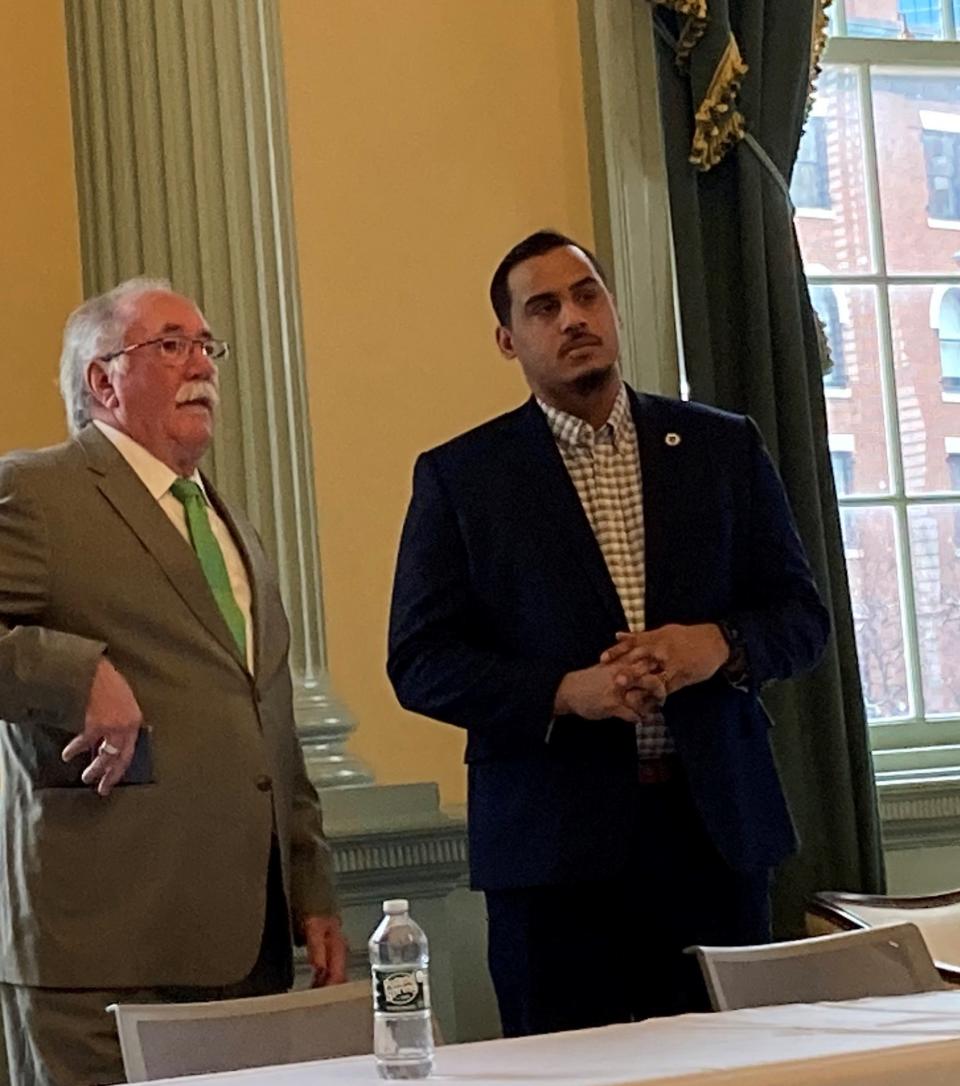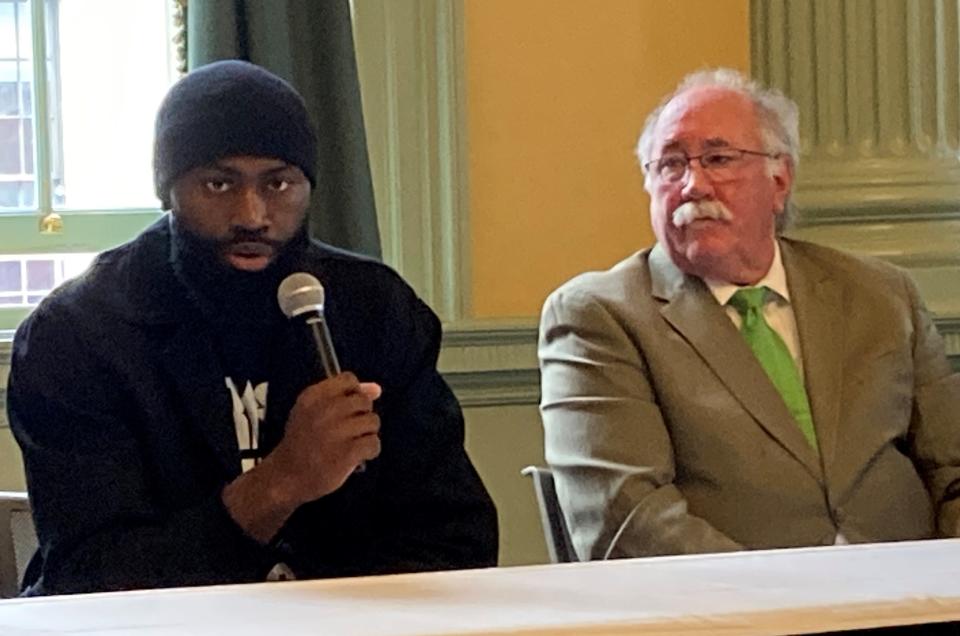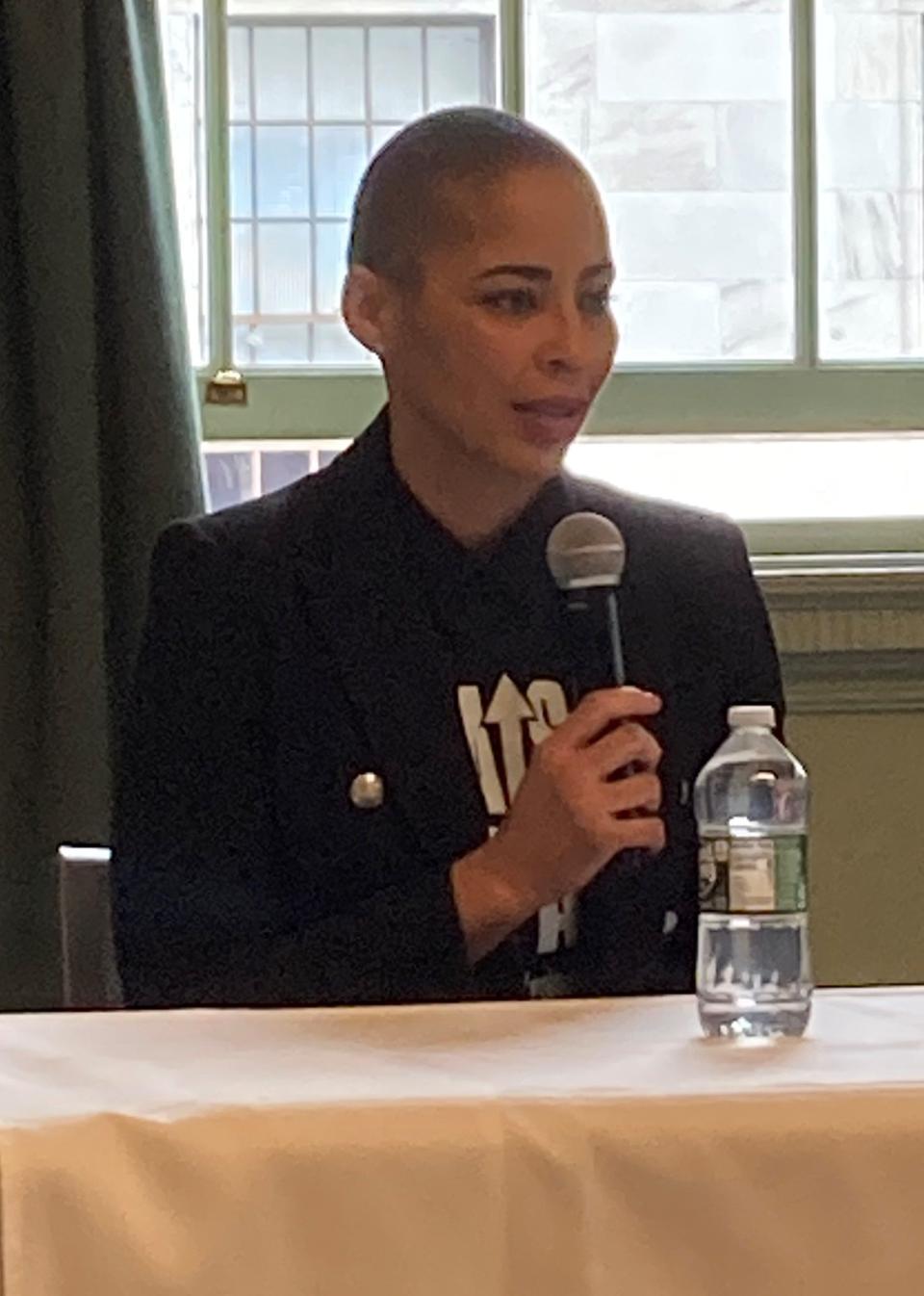Teens, young adults charged with crimes could be retained in state juvenile justice system
- Oops!Something went wrong.Please try again later.
- Oops!Something went wrong.Please try again later.
- Oops!Something went wrong.Please try again later.
BOSTON — Massachusetts lawmakers have filed legislation that proposes to keep young adults through age 20 who have been charged with crimes in the juvenile justice system, rather than adjudicating them through adult criminal courts.

The proposal, years in the making, stems from following years of brain research and was crafted through a partnership between legislators, the Boston Celtics Shamrock Foundation, Citizens for Juvenile Justice and the Committee for Public Counsel Services.
“It’s a matter of brain development, advances in brain science. That’s a huge reason why I became involved with the legislation,” said Rep. James O’Day, D-West Boylston, one of the four sponsors of the companion bills. “Science proves that a 13-year-old brain is not the same as a 15-year-old brain, as a 19-year-old. The brain doesn’t develop fully until age 25.”
The legislators filing the companion bills — O’Day; Rep. Manny Cruz, D-Salem; Senate President Karen Spilka, D-Ashland; and Sen. Brendan Crighton, D-Lynn — said they are reluctant to saddle young adults with criminal records for the rest of their lives, long after their brain development has caught up with their physical development.
A judge would decide on adjudication of capital offenses, O’Day said, when asked about the teenager arrested in the shooting death of Carl-Hens Beliard, a member of the state champion North High School basketball team.
How would new law affect teens arrested for capital crimes?
Beliard was a freshman attending Salem State University on a basketball scholarship and had yet to suit up for the team when he was shot while driving a car, allegedly by Missael Pena Canela, 18. The high school student was allegedly upset that his sometime girlfriend was also dating the athlete and fired at a vehicle both were in. Beliard died in the incident.
“Those kinds of cases would be looked at on an individual basis,” O’Day said.
Young adults would still be held accountable for their criminal behavior but would be kept out of the adult criminal justice system. In the juvenile system, they would continue to attend school, complete their education and receive the economic and social supports necessary to ensure they stay out of the system.
Research indicates that adjudicating young adults through the juvenile system reduces recidivism and the so-called “revolving door” of the criminal justice system.
“How easy is it to make a mistake in youth. Most of us have made at least one, if not several, even as many as 10,” said Spilka at a legislative briefing held Wednesday with the owner of the Boston Celtics, team management members and one of their all-star players, shooting guard Jaylen Brown.

“Raising the age makes all the sense in the world,” Brown said, adding that many people, especially members of Black and brown communities are “one decision away from being in a different life situation.”
Brown urged passing of bill, calling it a 'no-brainer'
He called the passage of the proposed legislation a “no-brainer” and urged inclusion of it on the list that makes it to the governor’s desk before the end of the legislative session.
The Celtics organization is committed to making a lasting impact for the better of the community that supports it. To that end, the team invests in local youth, organizing basketball camps and championing mental and physical health services, said Allison Feaster, vice president of team operations and organizational growth.
The growing trend in professional sports, Feaster said, is for young adults to eschew college or leave it early to play professionally. They compete with grownups without the benefit of college-level playing experience, with different coaches, teams and life experience.

“We interact with these young players differently,” Feaster said, adding that society also interacts differently with “kids,” limiting their ability to smoke, drink and even vote. “Why should we treat 17, 18 year olds as adults in law enforcement?”
But for making wrong choices, rash decisions, her younger brother could have been a college graduate, rather than in the criminal justice system, Feaster said.
Lagging brain development that influences choices made by young adults should be factored into perceived criminal activity, according to the legislators.
“This is a smart decision,” O’Day said. “It’s not soft on crime, not a weakness in the system,” he said, adding that the proposed legislation is a smart way to address the problem of adjudicating youth and keeping them from shouldering the lifelong burden of a criminal record.
He called a teenage criminal record a “life sentence,” one that could interfere with a teenager’s financial future, impede their ability to continue schooling, purchase a car or a home, or apply for a loan.
“It’s our job as parents, as legislators, to help protect our youth,” O’Day said.
School's resource officer praised
Cruz, the first Latino legislator elected in Salem, credits his success with the forbearance of the city’s school resource officer, who visited him at home and declined to press charges for what would otherwise be deemed “normal teenage behavior” if not for his race and ethnicity.
The legislator named two of his companions who made unfortunate decisions early in life, he said.
“Black residents are seven to eight times more likely to be jailed, Latinos four times more likely to be jailed,” Cruz said. “We’re giving young people the opportunity to become the best versions of themselves.”
The time to pass the legislation is now, especially in light of a Massachusetts Supreme Judicial Court opinion that rising adults are distinct from adults, said Dulcineia Goncalves, deputy chief counsel for the Committee for Public Counsel Services, youth advocacy division.
Keeping young adults in the juvenile system would ensure they continue with education, take responsibility and are held accountable for their actions and allow them to develop into healthy, successful adults, Goncalves said.
“We need to rethink how we treat emerging adults,” Spilka said, to ensure their reform and rehabilitation so that they can become productive members of society. “It’s our responsibility to understand, nurture and mentor youth, not criminalize, blame and incarcerate them.”
This article originally appeared on Telegram & Gazette: Bill proposes juvenile justice system adjudicate youths through 20

